Research
Tackling water scarcity innovatively
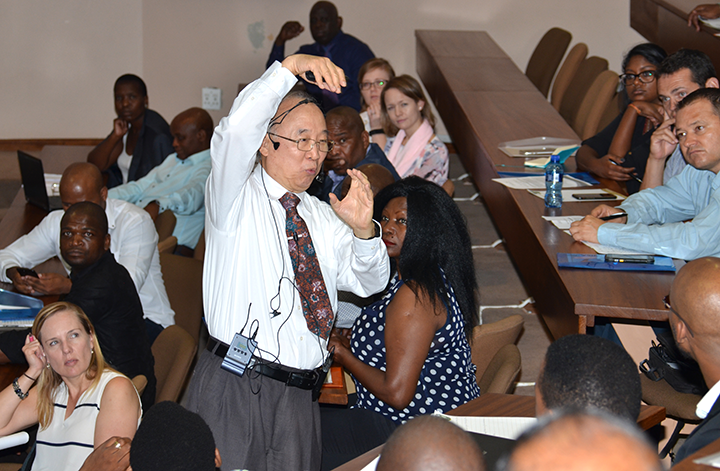
Prof. Nel T S Chung (Department of Chemical and Biomolecular Engineering and the Provost’s Chair, Faculty of Engineering, National University of Singapore), one of the top ranked researchers in the world, was a dynamic keynote presenter at the seminar.
A one-day workshop, hosted during Unisa’s Research and Innovation week was themed Collectively advancing innovative solutions for water scarcity and water quality: A South African perspective. It was an event aimed at bringing together all the stakeholders in the integrated water resources management area, with specific emphasis on bringing together minds from industry, academia and government, to deliberate on issues of water scarcity and dwindling water quality in South Africa. Fundamentally, the workshop was aimed at unpacking several topical issues on water research in South Africa.
The workshop was attended by 123 delegates, including from Umgeni Water, Magalies Water, Mhlathuze Water, CSV Water, Midvaal Water, Eskom, the Botswana International University of Science and Technology, North-West University, Department of Water Affairs and Sanitation, the University of Johannesburg, Botswana Water Utility company, the University of Swaziland, and many consulting companies and firms from across South Africa. Such a strong diversity and attendance of various stakeholders to this workshop speaks to the reality that the Nanotechnology and Water Sustainability (NanoWS) research unit has positioned itself as a key player in advancing innovative solutions to deal with the current water challenges facing South Africa.
In his welcoming address, Professor Bhekie Mamba, the Executive Dean of the College of Science, Engineering and Technology, mentioned that the event was one of several events that demonstrate that Unisa management and Council are well behind the Science Campus project, which is crucial for teaching of science and engineering at the university. He added that he was excited to note that the workshop had various stakeholders. “Partnerships between globally competitive universities and industry are playing a huge role in ensuring that we collectively find water solutions and other problems facing the country.” With this in mind, CSET is pursuing its internationalisation strategy by collaborating with leading researchers and institutions.
Membranes, desalination and water reuse
CSET and NanoWS were proud to host Professor Nel T S Chung from the National University of Singapore, who is one of the top ranked researchers in the world. The National University of Singapore has been ranked first in terms of water research related to membranes, desalination and water reuse by Lux Research USA.
He opened the workshop by deliberating on the alternative production of drinking water using various membrane processes and seawater desalination. The talk discussed various ways of fabricating, characterising and applying different combinations of membrane processes for the production of drinking water.
Technology transfer
His talk was followed by that of Ayanda Noma, Director of the Innovation and Technology Transfer Directorate (DITT), who spoke about the importance of and some challenges faced in the commercialisation of technologies developed at universities. He gave various examples of how technology transfer is applied to research as well as highlighting the need for developing patents at university level as means of fostering great research.
Chris Swartz of Chris Swartz Water Utilisation Engineers then gave a presentation on a Water Research Commission funded project that he is doing in collaboration with Mamba and Dr Thabo Nkambule of NanoWS. This is a three-year project funded to the tune of R1 million that seeks to find the extent of de facto water reuse in South Africa, focusing on emerging micro-pollutants with caffeine used as a model compound. This presentation was then followed by a presentation by Professor Titus Msagati of NanoWS that focused on the status quo of emerging micro-pollutants in South Africa.
Shalene Janse van Rensburg from Midvaal Water Company and Sandile Ngcobo from Magalies Water individually gave presentations about water quality challenges in their companies and how they have gone about mitigating such challenges.
Nchedi Maphokga-Moripe, who is the Chief Director: Global Corporation and Strategic Partnerships from the Department of Water Affairs and Sanitation, presented on global corporations and strategic partnerships. Her focus was on highlighting how government works with various stakeholders in universities and industry to promote partnerships on issues of concern to the people.
The workshop finally ended with a panel discussion on the use of forward osmosis for seawater desalination which was presented by a postdoc at NanoWS, Dr Machawe Motsa. Motsa highlighted the current scenario in Cape Town and presented an alternate solution to the water scarcity issue there using seawater desalination. A master’s student at NanoWS, Sikelelwa Ndiweni, also gave a presentation on a novel method of analysis and modelling of natural organic matter removal by various water treatment plants in South Africa. She proposed modelling of Fluorescent EEMs using ParaFac and Matlab.
The aims of the workshop were achieved, judging both from the numbers in attendance as well as the diversity of the audience and the discussions that ensued thereafter.
What does this mean for the college?
According to Nkambule, “The College of Science, Engineering and Technology is positioning itself as a key player in various issues of importance to the lives of South Africans and those who live in it. One of the key strategic areas of research is partnerships and collaborations with stakeholders. The college has opened its doors for collaborations with other colleagues from other universities, industry, consultants and government. The successful hosting of such events by the college speaks to the relevance and quality of the research taking place within CSET. It is impressive that an event hosted by a university can attract literally all stakeholders in the water treatment sector.”
Dr Lueta-Ann de Kock, Director of NanoWS, added that the willingness of researchers of the calibre of Chung and the other invited speakers to visit the college and NanoWS is testament to the regard for the work being carried out in the college and the research unit. The NanoWS unit is actively pursuing strategic international collaborations while still developing and maintaining strong partnerships with southern African universities. The current workshop has met several of the aims by bringing together a diverse audience and facilitated discussions that will develop and strengthen new and ongoing collaborations.
What does it mean for the university?
Unisa is an African university, shaping futures in the service of humanity. South Africa is currently a water-scarce country and researchers are continually looking at advancing innovative solutions for the water scarcity and water quality challenges currently facing the country. NanoWS and CSET are in the forefront of producing cutting edge research that not only offers innovative solutions to deteriorating water quality in the country but also offering economically viable solutions as well.
Nkambule said that the college would continue to engage partners. “The destination is to provide research solutions that speaks to the needs of the people. The college cannot do this if we work alone. We need a buy-in from industry, from government and from consultants who all work on the water treatment field. Our students continue to do cutting edge research and with the top-of-the-range, state-of-the-art infrastructure and instruments that we have (courtesy of funding from Unisa and other stakeholders), there is nothing preventing us from reaching the top.
“We want to be recognised as the top research institute globally and locally that focuses on water research. Ours is to achieve excellence through intelligent and hardworking students, a dedicated team of researchers and support staff while surrounding ourselves with expertise and knowledge from our industry, government and academia partners. The college hopes to have many of such events in the future with the promise that the innovative solutions we propose in our labs will reach the use of those of our people who need it the most (the consumers) at affordable prizes.
“Finally, the College of Science, Engineering and Technology continues to open its infrastructure and labs with the view that we eventually form a water research centre that does analysis for other stakeholders at a fee, both promoting the visibility of the research team and the university as a whole.
*By Thembeka Ntuli-Mpapama
Publish date: 2018-03-15 00:00:00.0


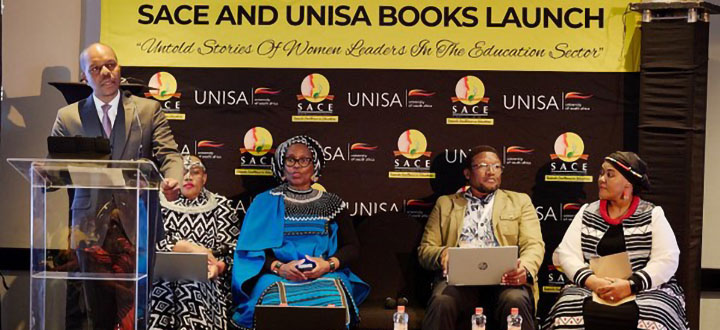 WiLM project culminates a vision for transformation in education
WiLM project culminates a vision for transformation in education
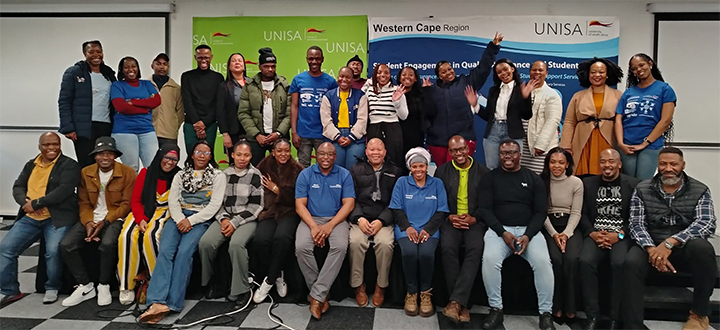 CAS students take centre stage in shaping academic quality and support
CAS students take centre stage in shaping academic quality and support
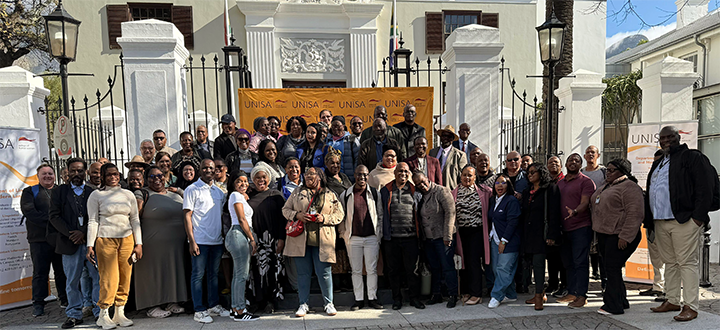 Unisa engaged scholarship project heads to parliament
Unisa engaged scholarship project heads to parliament
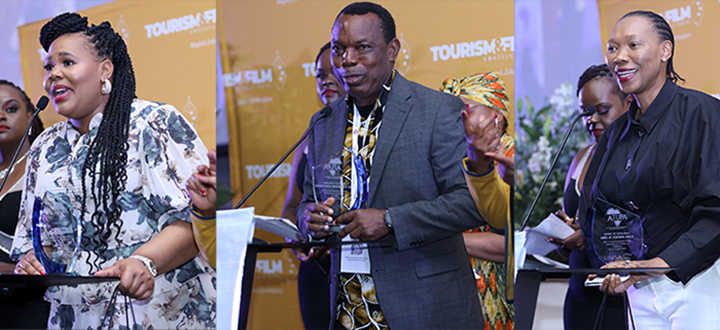 Unisa and ATUPA recognise researchers for ingenuity and innovation
Unisa and ATUPA recognise researchers for ingenuity and innovation
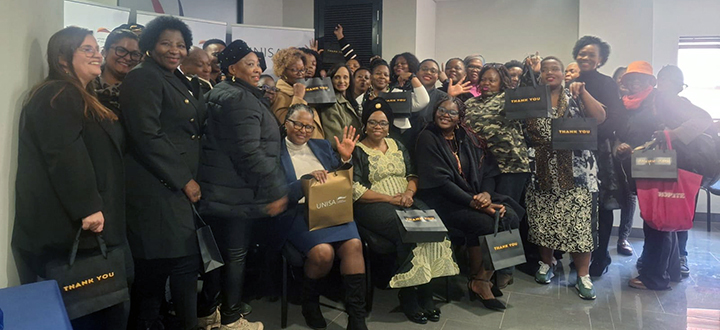 Recognising the unceasing resilience of women
Recognising the unceasing resilience of women